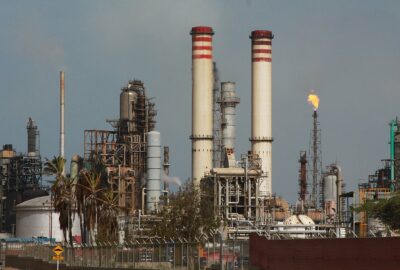
The executive orders issued by President Trump are poised to have profound implications for both the U.S. and global energy landscapes, analysts at BMI, a unit of Fitch Solutions, stated in a BMI report sent to Rigzone late Tuesday by the Fitch Group.
“Domestically, the emphasis on increasing fossil fuel production will boost U.S. oil and gas production output, providing immediate economic benefits to the oil and gas sector by reducing regulatory barriers and streamlining permits,” the BMI analysts said in the report.
“We expect that these orders will increase oil and gas consumption in the U.S. – domestic production becomes more readily available and potentially more cost competitive,” they added.
The analysts went on to note in the report that this intensified focus on fossil fuels poses a risk to the United States’ long-term climate objectives.
“By prioritizing fossil fuel infrastructure and rolling back restrictions, the orders may slow down the United States’ energy transition to renewable energy sources,” the BMI analysts said in the report.
“Furthermore, it places barriers on wind power development, through the suspension of offshore wind leasing, representing a critical setback for the U.S. renewable energy sector,” they added.
“Offshore wind projects, which have been gaining momentum as a cornerstone of clean energy strategies, could face significant delays or cancellations. Such interruptions could impede progress towards diversifying the energy mix and meeting emissions targets, affecting both environmental outcomes and the competitiveness of the U.S. renewable energy industry,” they went on to state.
“Additionally, uncertainty surrounding regulatory support for renewables could deter investors and developers, leading to delays or cancellations of planned projects,” the analysts continued.
The BMI analysts also noted in the report that the United States’ stance may discourage other markets from pursuing or enhancing their climate goals.
“This could stall international climate negotiations and collaboration, undermining collective efforts to curb global warming and meet the United Nations’ climate targets,” they said.
“An increase in U.S. fossil fuel exports, facilitated by expanded production capacity, could reduce fuel costs, shifting the global energy mix towards higher emissions. This could counteract the progress made by other nations in reducing their carbon footprints and transitioning to cleaner energy sources,” they added.
“The United States’ dominant position in global energy markets, driven by increased exports, may influence energy prices and supply dynamics, increasing the availability of cheap fossil fuels, thereby increasing the attractiveness and consumption of oil and gas,” they continued.
The BMI analysts stated in the report that this “would lock in fossil fuels for many years and slow the transition to cleaner alternatives”.
“Furthermore, the United States’ withdrawal from the Paris Agreement weakens international cooperation on climate action and weaken[s] climate investments through the slowing U.S. climate funding internationally,” they added.
The BMI analysts stated in the report that the executive orders’ impacts will largely depend on their implementation and potential legal challenges.
“The orders could face legal challenges, particularly if they are perceived to exceed the President’s authority or conflict with existing environmental laws and regulations,” the analysts added.
“Despite this, we do not expect that these orders will be overturned by the U.S. courts,” they went on to state.
In a report sent to Rigzone by Standard Chartered Bank Commodities Research Head Paul Horsnell late Tuesday, analysts at Standard Chartered Bank, including Horsnell, said, “we have not yet seen any major surprises in the new administration’s oil and gas policies, except perhaps the extent to which they have been framed as a central core of the entire program”.
“We also were surprised that the pledge to refill the Strategic Petroleum Reserve (SPR) included the phrase ‘right to the top’; we had expected a less explicit definition of the target even if the timescale for the fill is as yet undefined,” they added.
“Given the lags involved (even if there were no legal challenges), we do not think relaxation of federal drilling bans will add to supply over a five-year period, and we expect any boost in shorter-cycle drilling will prove modest unless prices move higher,” they continued.
“While we think there will be a significant increase in U.S. energy output during the administration, we expect most of the increased supply to be natural gas,” the Standard Chartered Bank analysts said in the report.
Rigzone has contacted the Trump transition team and the White House for comment on the BMI and Standard Chartered Bank reports. At the time of writing, neither have responded to Rigzone yet.
To contact the author, email











